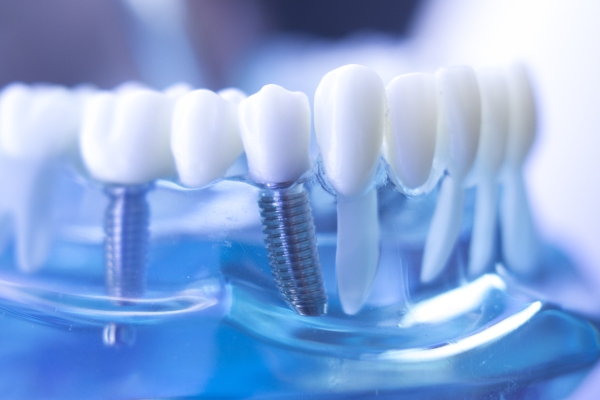All-on-4 Can Replace Multiple Teeth

For patients missing multiple teeth, All-on-4® dentures are an excellent restorative option. These implant-supported dentures can transform a patient's smile. Many patients prefer this type of denture, as it is more secure and natural-looking than a regular denture.
Before committing to this procedure, patients need to understand the process. The dentist should explain the benefits of All-on-4® dentures and what to expect during treatment. This way, patients can make informed decisions about their dental care.
The All-on-4® process
If a patient has several missing teeth or needs multiple teeth extracted, a dentist may recommend a denture. Patients who have ample bone support in the jawbone may be candidates for implants. Implant-supported dentures snap into place and are an ideal restoration to replace missing teeth.
During the initial consultation, the dentist takes X-rays of the patient's teeth and jaws. If adequate bone levels are present, the All-on-4® process can begin. Patients should have a clear understanding of the procedure before continuing with treatment.
Extractions and implant placement
At the patient's first appointment, the dentist extracts any remaining teeth, then places four small implants into the jawbone. Following placement, the dentist screws small metal abutments onto the implants. These abutments serve as an anchor for the patient's denture.
In most cases, the patient leaves with a temporary denture in place. This interim denture does not fit as tightly against the gums as the final denture. This looser fit allows the extraction and implant sites to heal completely.
Recovery period
During the recovery process, bone grows around the implants to lock them into place. This healing process is known as osseointegration and must occur for All-on-4® success. Osseointegration usually takes three to six months. During this time, the dentist takes X-rays to make sure new bone growth is occurring.
Patients should follow the dentist's instructions during this process to ensure proper healing. The dentist may recommend eating soft foods during the osseointegration process. This way, the implants are not sustaining too much force when patients eat. Patients should refrain from using any tobacco products, as this increases the risk of implant failure.
Final denture placement
Once the bone has sufficiently fused to the implant, the dentist can make the final restoration. The gums shrink during the healing process, so the dentist must take new impressions. A dental laboratory fabricates a custom acrylic denture based on these molds.
The patient's new denture snaps onto the implants. This extra security gives the patient confidence when eating and speaking. The patient may develop sore spots on the gums after receiving the final denture. If so, the dentist can adjust the denture to be more comfortable.
Conclusion
Missing teeth are a source of embarrassment for many patients. However, treatment options such as All-on-4® allow patients to smile again. Patients interested in this treatment should set up a consultation with a dentist. After a comprehensive exam, patients can find out if this is a viable treatment option for them.
Request an appointment here: https://www.pearldentalsanjose.com or call Pearl Dental San Jose at (408) 599-5002 for an appointment in our San Jose office.
Check out what others are saying about our dental services on Yelp: All-on-4 Dental Implants in San Jose, CA.
Related Posts
Dental implants are a popular option for people missing one or more teeth. They look, feel, and function like natural teeth, making them an enticing choice for adults needing tooth replacement. Though this option offers many benefits that other teeth replacement options do not, it may not be the right choice for everyone. Let us…
Dental implants are an effective replacement for missing and damaged teeth. There are, however, some factors that may cause implants to fail. If you have noticed the signs of failing implants — such as severe pain, trouble chewing, and gum inflammation — it is important to consult a dentist to curb the problem. This article…
Most people want to have dental implants right after dental extraction. Replacing the lost tooth is a priority. This can prevent more complications as the mouth heals. Understanding the process of getting implants after dental extraction can help prepare you for your appointment. Here are the details about getting dental implants after a dentist removes…
Dental implants are long-lasting, permanent tooth replacements. They are a popular choice among patients for their durability and ability to look and feel like natural teeth. However, dental implants are an investment, and they should be cared for as such. Follow the tips below to help extend the life span of your implants and prevent…


